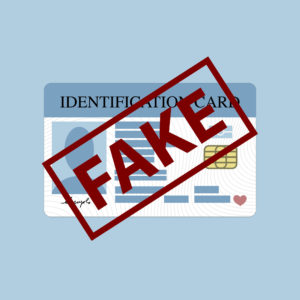
Getting caught lying to your parents can get you grounded, but getting caught lying to police can have serious consequences. If you are caught lying to police, odds are you’ll face additional charges. Today, we take a closer look at what happens when you lie to police, and what type of penalties you might face in Minnesota.
Lying To Police
Under Minnesota law, lying to police is considered obstruction of the judicial process, which means you’ll face an obstruction of justice charge. However, what you say in your lie helps to determine the severity of your charge. Here’s a look at three passages outlined in Minnesota Statute 609.506.
1. Whoever with intent to obstruct justice gives a fictitious name other than a nickname, or gives a false date of birth, or false or fraudulently altered identification card to a peace officer, as defined in section 626.84, subdivision 1, paragraph (c), when that officer makes inquiries incident to a lawful investigatory stop or lawful arrest, or inquiries incident to executing any other duty imposed by law, is guilty of a misdemeanor.
2. Whoever with intent to obstruct justice gives the name and date of birth of another person to a peace officer, as defined in subdivision 1, when the officer makes inquiries incident to a lawful investigatory stop or lawful arrest, or inquiries incident to executing any other duty imposed by law, is guilty of a gross misdemeanor.
3. Whoever in any criminal proceeding with intent to obstruct justice gives a fictitious name, other than a nickname, or gives a false date of birth to a court official is guilty of a misdemeanor. Whoever in any criminal proceeding with intent to obstruct justice gives the name and date of birth of another person to a court official is guilty of a gross misdemeanor. “Court official” includes a judge, referee, court administrator, or any employee of the court.
In other words, giving a fake name or birth date to a police officer who asks for identification is considered a misdemeanor, but giving real information of someone else or using someone else’s ID card is considered a gross misdemeanor, as is lying to a court official.
In Minnesota, misdemeanor offenses are punishable by up to 90 days in jail and fines up to $1,000. Gross misdemeanors are punishable by up to one year in jail and fines up to $3,000. As you can see, both crimes can have some serious consequences, so if you or someone you know is facing obstruction of justice charges, consider hiring a lawyer to defend you in the court of law. Avery has successfully challenged many obstruction of justice charges in the past, and he’d be more than happy to work on your case. Contact Appelman Law Firm today for more information.





